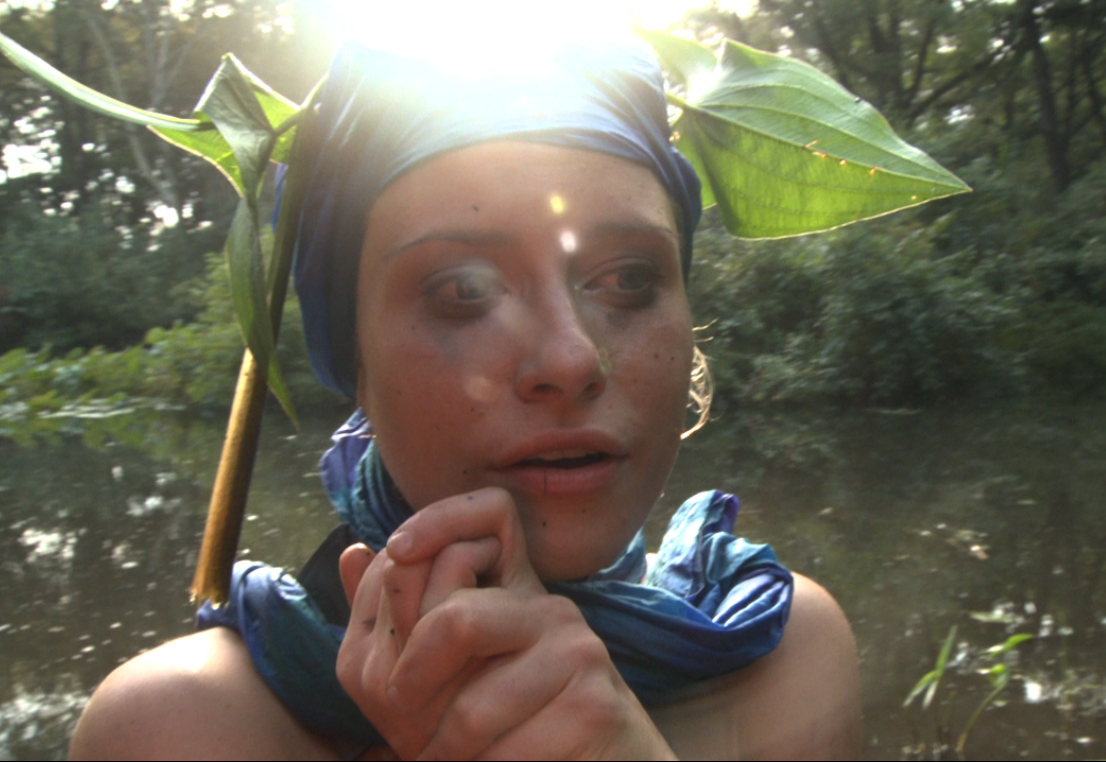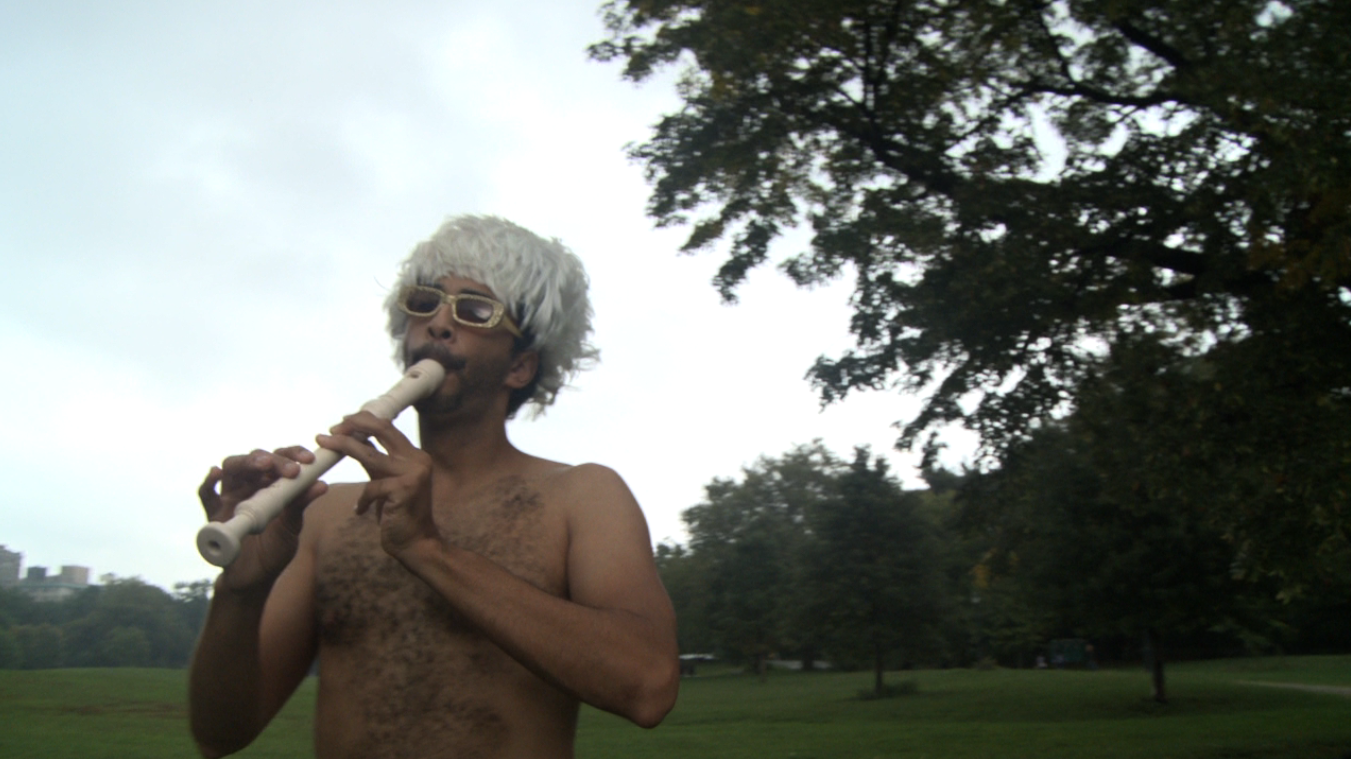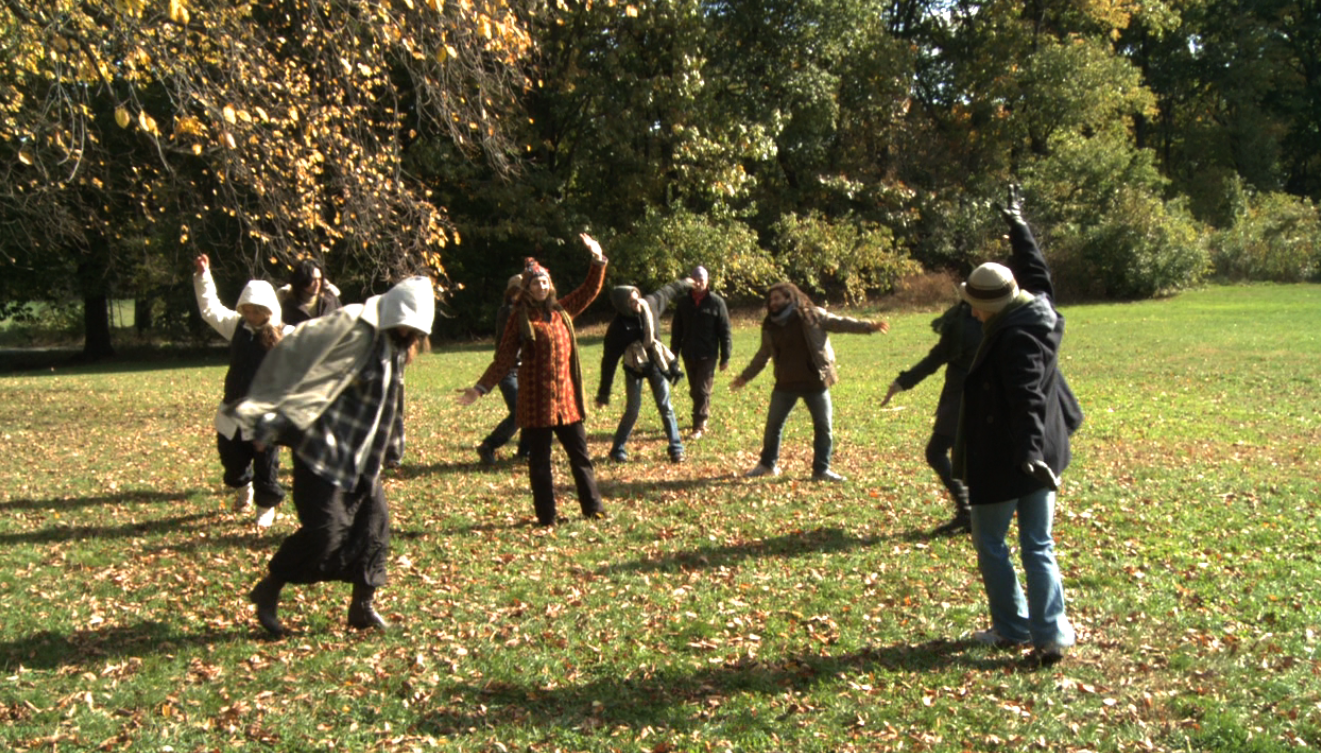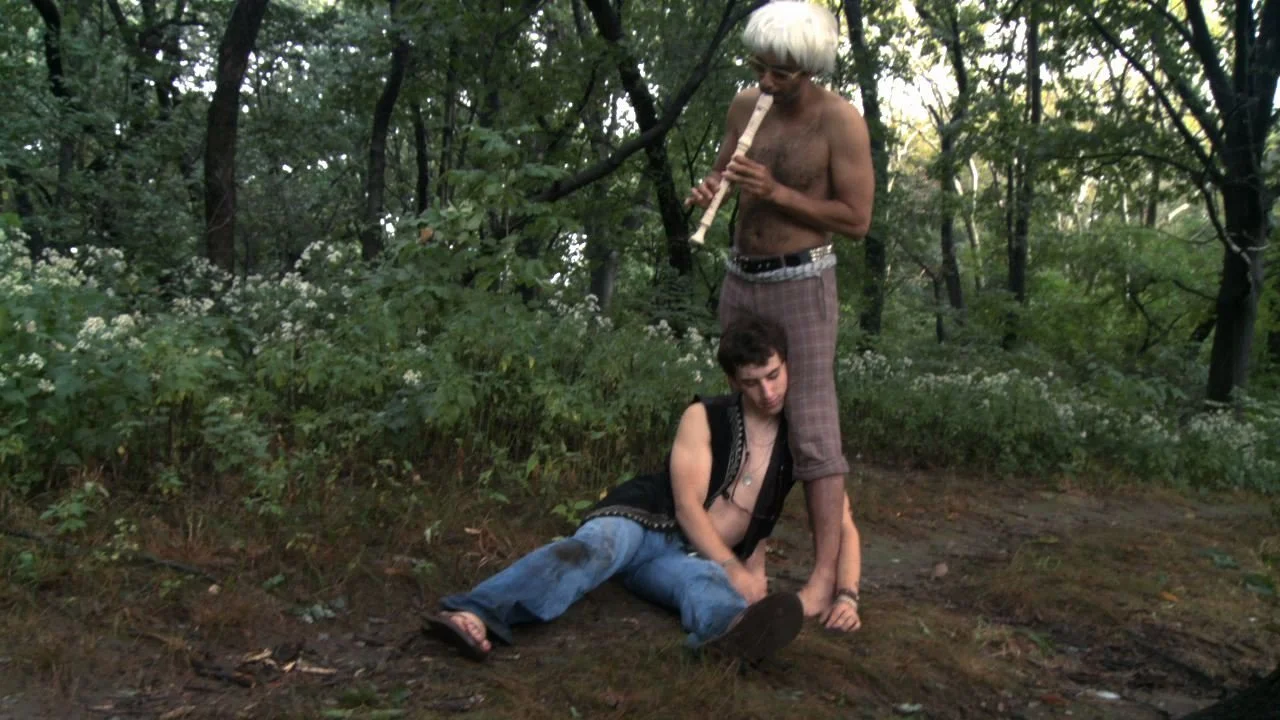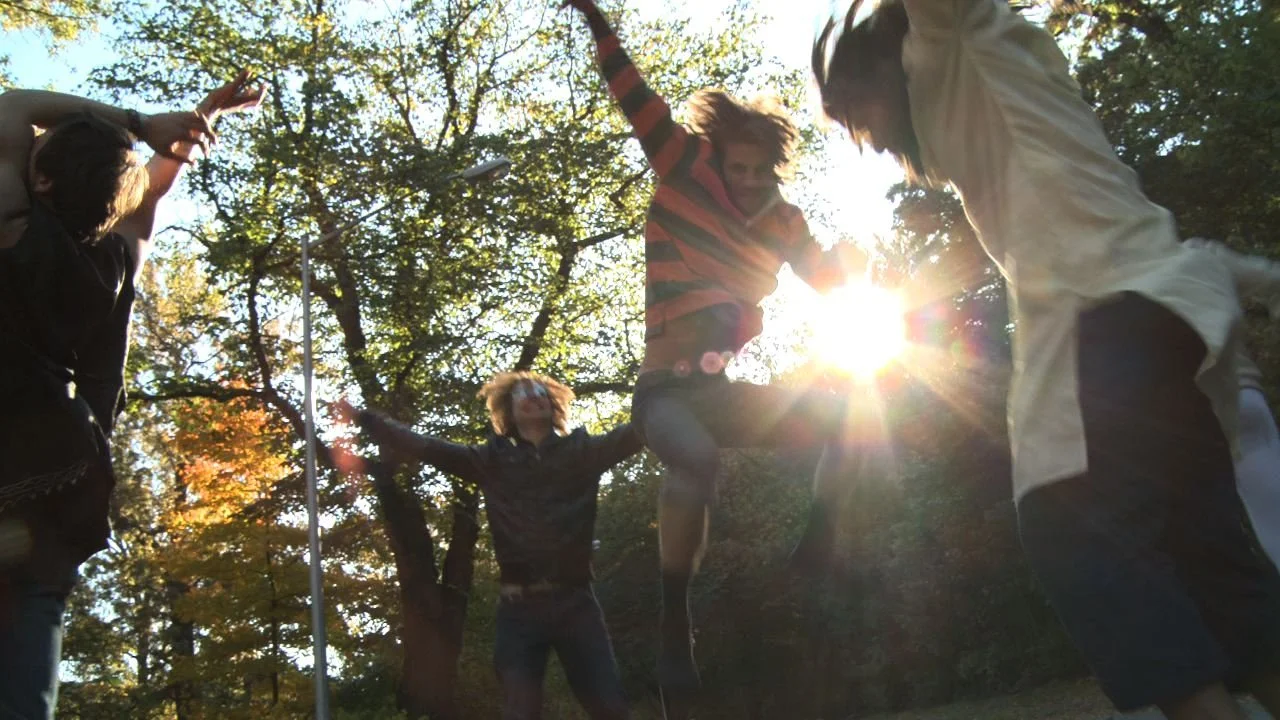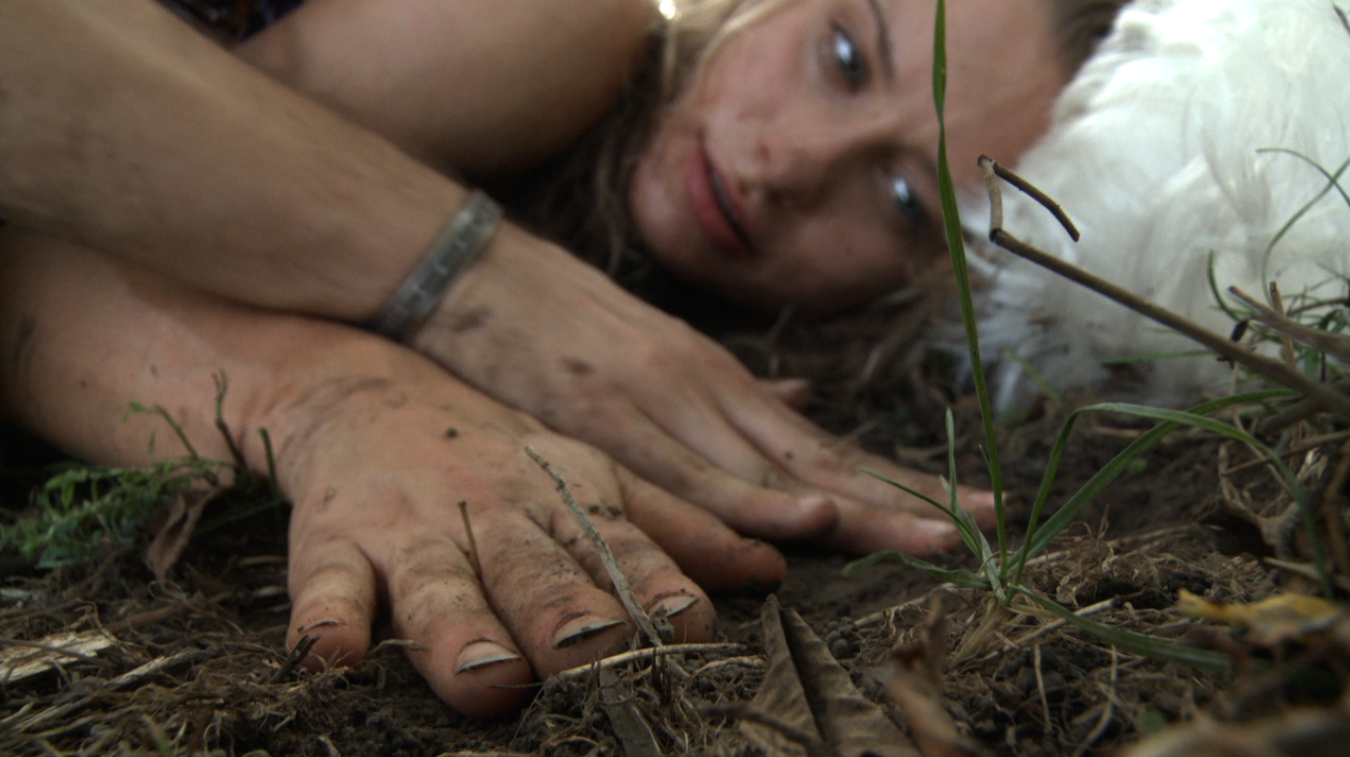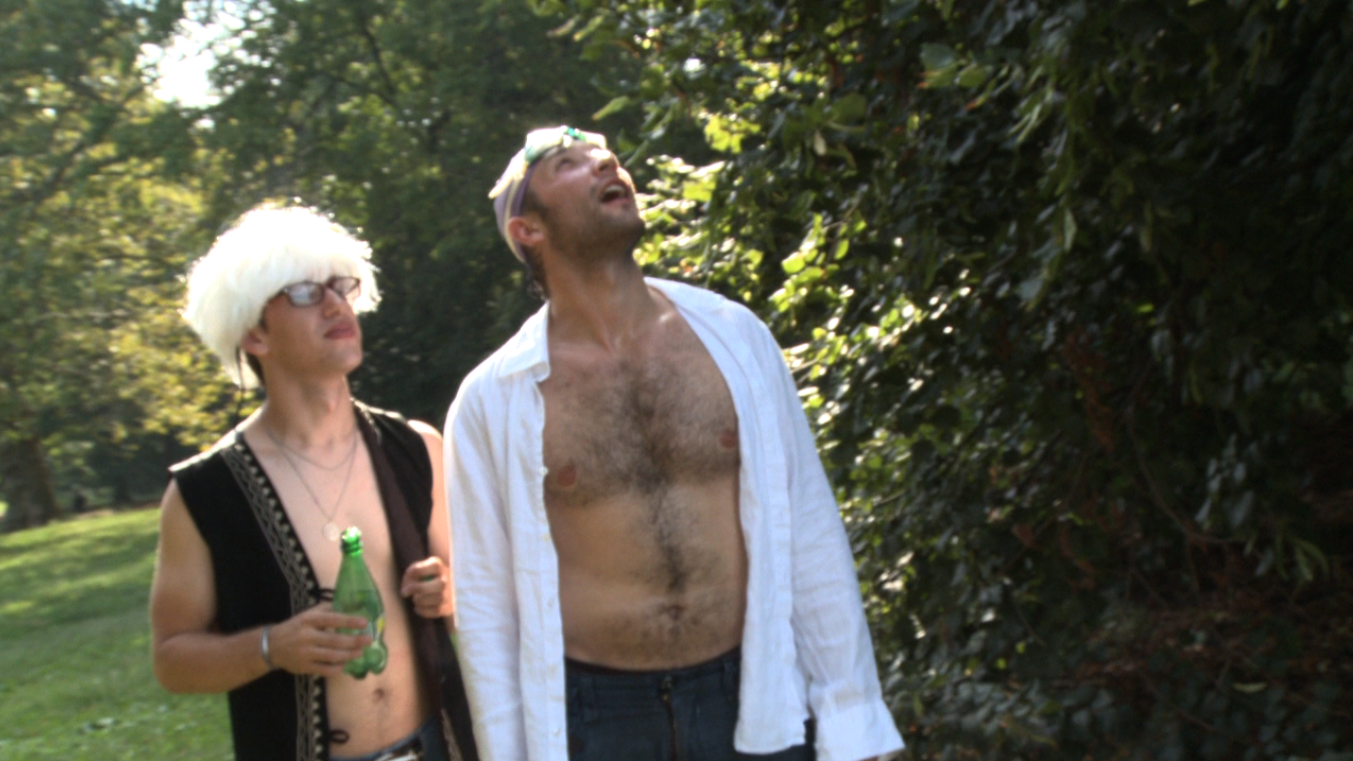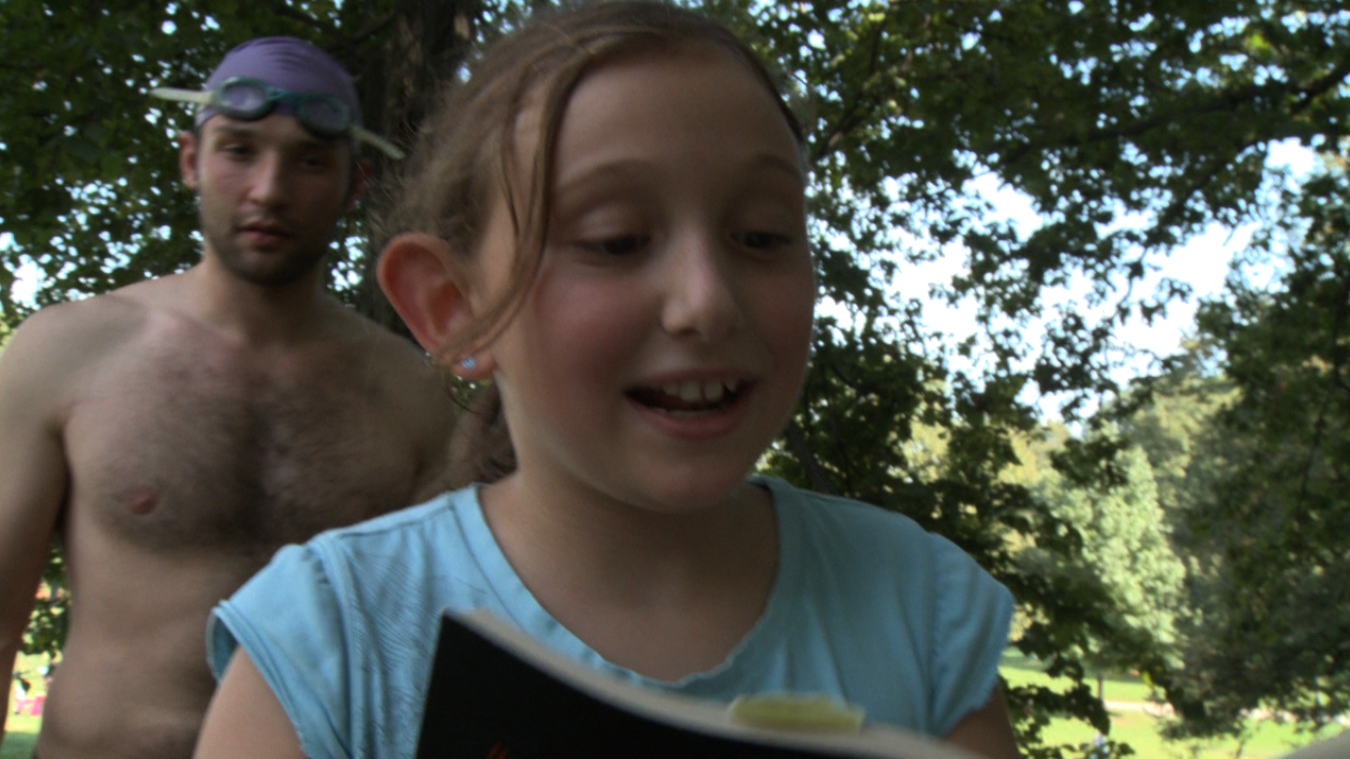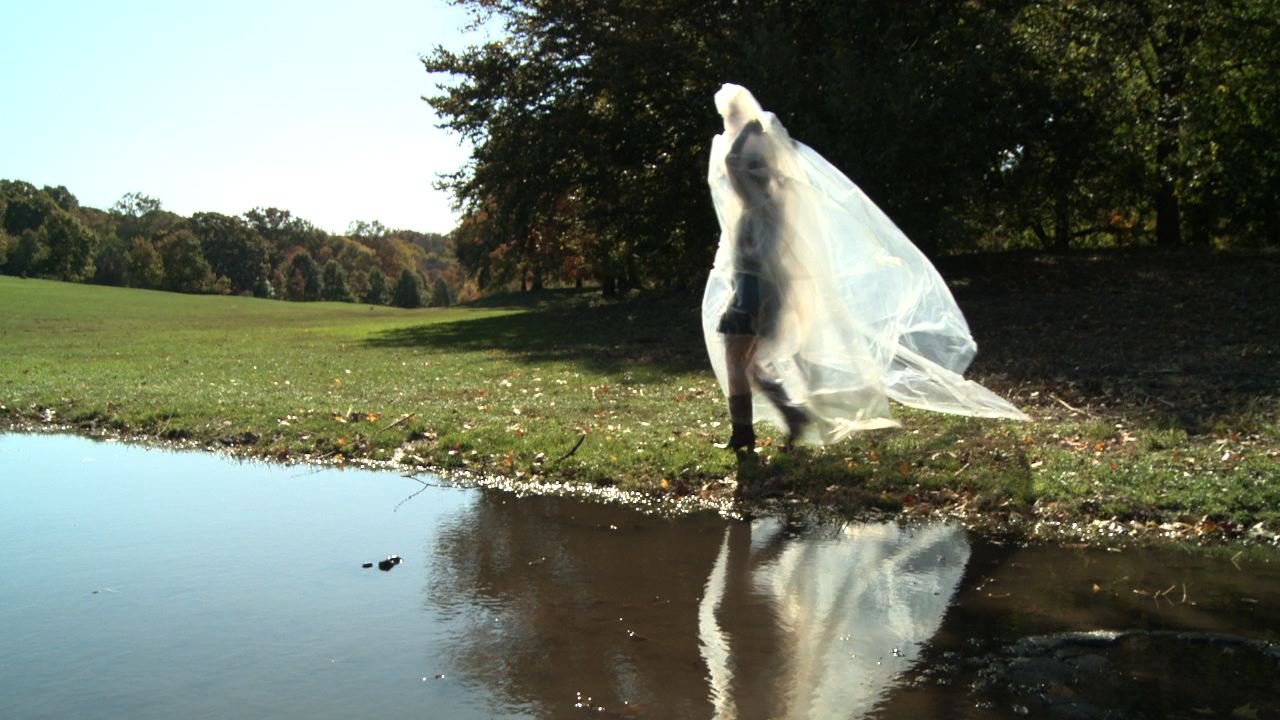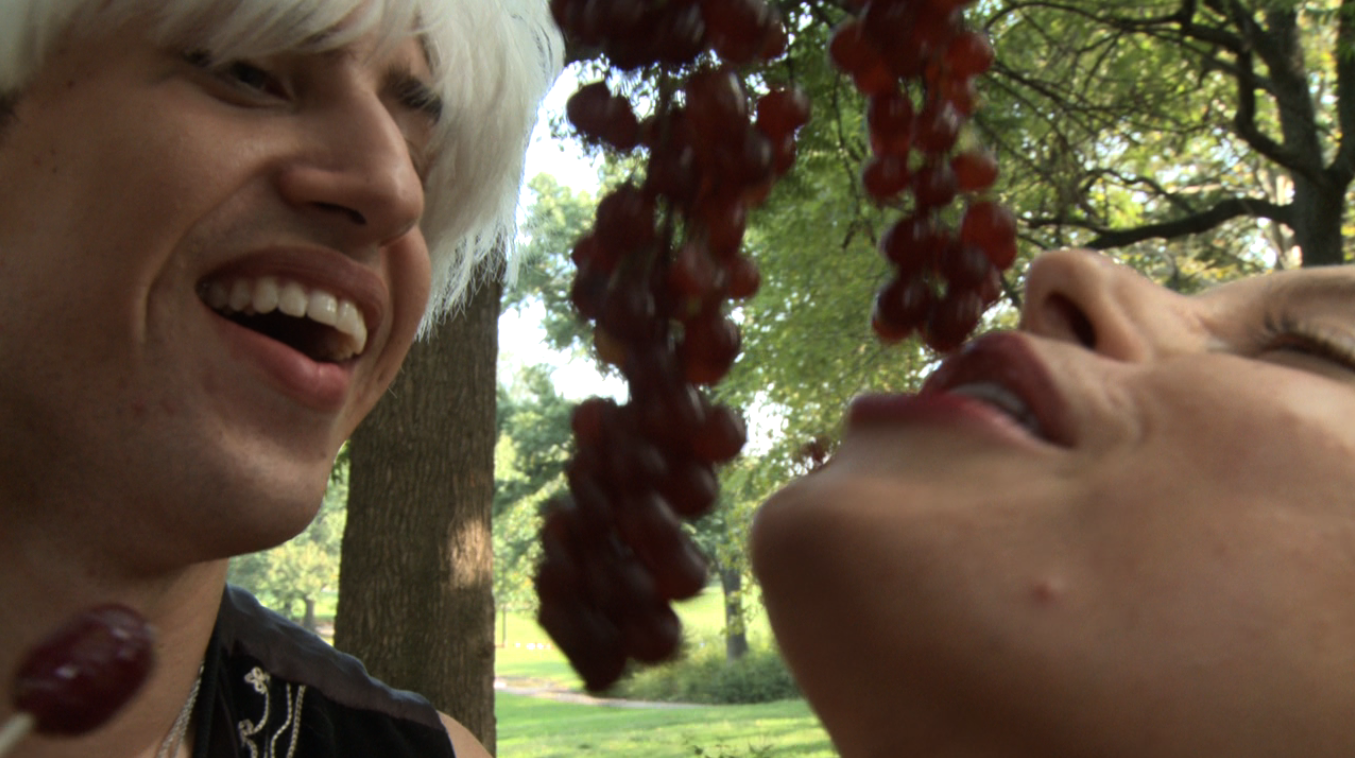paradise, 2009
Paradise, trailer, 1:49
Paradise, full film, 74:40
SYNOPSIS:
A group of theater students get together in the park to discuss 'fiction and the real.' Soon, through a series of fables authored by their theater professor, Solange, we witness their true desires, fears, disappointments. Ultimately we discover an alternative way of seeing through film and the act of recording. It is a film as much about reality, humanity and identity, as it is about film itself, seeing and being seen
REVIEWS
“Real Unreal Surreal”
Alan Berliner, Three time Emmy Award Winner
“Paradise’ reflects Marc Lafia’s dilemmas, loves, questions, frustrations and happiness-es. It feels a bit like ‘WEEKEND’ except Marc Lafia style...the photography is amazing...
Nina Menkes, Filmmaker
“Symbiopsychotaxiplasm -- Paradise is a gem sharing the same genetic material.”
Michael Chichi, Designer
“Profound reckoning with the very limits of the moving image. Paradise disarms the viewer of their expectations of conventional film narrative, inviting the viewer instead to ‘go with’ the flow of a film that is an open-structured happening, moving images in a state of becoming.”
Daniel Coffeen, Philosopher
“A midsummer nights dream that provokes the imagination.”
Duane Dell’Amico,, UCLA Film Professor
ESSAYS
High Definition Human Experience Film
Michael Chichi
While it might seem on the surface of things that there is no discernible narrative, that there is only surface, that is far from true. There is a profoundly deep story contained within. Expressed through allegory and performed through parables, Paradise moves as life moves, as a dynamic film experience, rather than staid 3 act fare. But don't discount the exquisite surface either. Shot on gorgeous HD video, in verite fashion... image + sound are approached with the purity of a field recording. An anthropological documentary on the human dilemma within society. On the choice of becoming human.
A Poetic Anatomy. Paradise is the most apt title. The films action takes place in one environ, the beautiful Prospect Park in Brooklyn, NY. This is Paradise. This is Eden. Within this sphere is contained enough nourishment & opportunity for all to experience their bliss. However, as we see in the film, everyone is clearly not. Through a string of connected parables, each one sliding and gliding across the other, we find an exploration of the human condition within "the game". Covering many themes... human neurosis, dominator culture, excessive neediness, commodification, conditional love, the suffering individual... We find that rather than experiencing paradise, our characters are lost & obscured in other games, other dramas.
They are missing tasting the sweet nectar of life... believing this sweetness exist outside of them. But what they seek is closer than they realize. No one knows this better than the mythic character 'Solange'. She is the god and goddess, the shaman. In the film's opening, she pronounces to them "the fiction and the real". Like a zen koan. Her students stumble to answer, as though she asked a question of difference, when she clearly did not. Her students presume that there actually is a difference between the two. All the while becoming marginalized by this imagined difference. Indeed there is no difference.
There is no question poised. We are the creators of this world, the authors, players, and experiencers. Not of being something, but of 'becoming' possibilities.This is such a timely story. Indeed, an allegory for our times. It deeply reflects what is going on in the world today. How the old games of the past, are decomposing, breaking down. Yet on the surface of things, it reads like utter chaos and catastrophe. But that is merely the surface tension of lower density consciousness, shuddering and breaking, to make way for higher density paradises. It is here. It always has been. It's so damn easy. And by the end of the film, we find that our once lost souls have made this realization as well. Some more subtler than others, and through quiet repose.
However, Wellbeck's breakthrough is far less muted and more cathartic. He does discover that indeed paradise is always at ready, deep within his becoming. "There is nothing in here but sweet juice." "It's time to live!"
An Atavistic Dream
Matt Kohn
Marc Lafia's new experimental feature film Paradise has a direct strategy which builds in and challenges the audience to dream. The film opens with a woman playwright writing a play at the side of her lover, in a large green, public park. The camera is so tight in on
them that you feel like you are on the blanket too. Soon, in the same setting, she is leading a group of actors rehearsing the play. But the rehearsal becomes the play, which is focused on these actors as they completely assume the life of the characters. Open minds will enjoy the pleasure and discomfort of this spin down the rabbit hole. At first the actors are a mass together, then two by two,they run away into the woods and engage each other in their fascinating childlike and intimate behavior. And who are these characters? What happens is more than script's lines implanted on actor's improvisational personality. The challenge becomes clear: ride this to it's illogical end, an emotionally engaging atavistic dream about the meaning of beauty, a conflict without good or evil, enacted in a beautiful public setting that represents the titular paradise.
Going with Marc Lafia’s Paradise
Daniel Coffeen
Preamble
Despite appearances—and yet, precisely in and of appearances—, we fray. We undulate, radiate, stammer, and bleed; we vomit, cry, shit, come. We are enmeshed in complex emotional and financial economies, in networks that at once constitute and exceed us. Elaborate institutions deploy themselves to organize the morass, straighten the edges, align the borders. Quite young, when our excesses are readily apparent, we are told to sit still in our chairs which together with our little desks are meant to be our borders of the social, to be crossed only when asked. Our bodies, which have an annoying tendency to leak, are sewn up (at least in public). Our homes become extensions of this discretion,stipulations meant to keep us contained, discrete units. Film, too, organizes us—our bodies and emotions, our experiences, the social body itself. With its institutional pre- and proscriptions, it makes assumptions of such stipulations. Of course there are characters who have names, who have this or that history, this or that motivation. Of course there is a story, a reason for this characters to be here, to interact, to move. Everything is neat; everything is clear; everything is in its place. The camera is here, the action is there: the filmmaker, camera in hand, records the action. And yet there have always been films that work with different assumptions (or without assumptions, as the case may be)—David Lynch, Godard, Welles, Cassavetes, Bunuel, Lars von Trier, Harmony Korine, Gillo Pontecorvo, Abel Ferrara, Terrence Malick, Wong Kar Wai, Claire Denis. The list goes on but is not excessively long. For all these directors, there is a certain a viscosity of sense, of identity, of celluloid itself. People, cities, desire, nature take each other up in varying ways forging networks of drift (albeit in very different ways; everyone has their own way of drifting). Film is a media in which movement is privileged and hence allows for a certain release from the fixity of borders.Film wants to become, not be. Film is perhaps uniquely capable of presenting the great teem of humanity, its messy, beautiful writhing, its incessant flows and waves and burps. Moving With Paradise oozes. It is a messy movie that moves, ceaselessly. Sure, bodies in the film move—they dance and flap their wings, they run and play and frolic, they vomit and scream and moan. But the film, too, moves. It doesn’t just capture the movement of others; it moves. This movement of this film is complex. At times it moves as if on a parallel track. But more often this movement is with bodies, of a rhythm forged between and amongst film, camera, bodies, and affect: an emergent jazz score. (I accidentally typed “jizz” and that might have been correct, too, as this film, despite no nudity and barely one kiss, is supremely erotic. Paradise relishes.) Look at the boy and girl, lying together in the grass, sharing grapes and grape lollipops, the presumed original and imitation sharing equal privilege of taste, neither a derivative of the other, each going with the other as well are too human, too familiar; affects are indifferent to humanity, exceed humanity: affects move in, out, in, over each other. And then there is the seeing of this scene, a seeing that never stops moving, that never gives us mastery of the encounter. We never see the bodies from afar, as if the camera were simply recording, as if we as viewers were voyeurs given privy to some private affair. On the contrary, this seeing—of the camera and of the viewer—is constitutive of the scene (or seen), an active agent caressing, coddling, cuddling, provoking, teasing, loving. The film palpates us and asks for us to reciprocate creating an affective flow of flesh and film. The film bleeds the senses: this film is not just seen but felt. It is a sensorium, an orgy of sorts but not a pornographic one. It’s as if Paradise seeks to deploy Eros—not just lust or pleasure—, celebrating the body’s writhe. So the film goes. A writhing meander, the film rises and falls, much like a sprawling symphony , much life desire itself, with its peaks and valleys, its motifs and variations (a fetish is a kind of motif). There is order here but it is an immanent order. It is not an undifferentiated morass but a morass with internal borders that emerge before our very eyes. At each moment, the film feels that it may careen off the screen, that it may simply collapse under its own weight or fly away due to its lack of heft. But no: miraculously, it hangs together. This makes watching the film exciting as we are privy to the intense drama of sense emerging. Will it all hang together? What impossible glue will suffice? WIth no ardent narrative to tell the film what to do, the film is free to be part of the mix, not just recorder of the event: the film joins the film, the recording is recorded. And not just in those explicit moments when we see the camera or sound man or script. At the risk of sounding, well, stupid if not just redundant, in every moment of Paradise, the film is in the film or, better, the film is the film (it is not a record of action). This is paradise (and Paradise) where all the world’s a (sound) stage, where there is not first a world and then what we do in it, what we do to it. Paradise is the temporal ooze within humanity, a way of going with the world, not in the world. (This is not to say that paradise is being one with the world; I’m saying it’s being many with the world, many ways of going, many desires and speeds and rhythms and consistencies and shapes all commingling. Lafia gives us a paradise that supersedes God and Darwin by offering creative evolution—a Bergsonian paradise, all differentiated becoming.) Rather than hunkering down into our discreet egos to weather the torrent of becoming, in paradise we embrace the flux. Things here will not be sewn up tight—not our mouths, not our identities, not our emotions, not the film, not our senses or our sense. To go with this mad teem of the world carries risk, danger, and it is gloriously messy. Tears, vomit, laughter, and love flow unabashed. Paradise, it seems, is not quaint. How do we find this paradise? How do we become? Well, it is certainly not by following the same old rules of containment. We need to begin from somewhere else entirely where we can jettison the assumptions of identity, of cause and effect, of linear time. We need a new grammar—of film, yes, but perhaps also of life—that will allow, facilitate, and amplify becoming.
Only an amateur is free or oblivious or indifferent to the institutional requirements of discretion—character, plot, action, reverse shots, tracks, cranes—to move this intimately, to sprawl this madly. Indeed, there is something amateurish about Paradise. But how could it be any other way?
As Marshall McLuhan says in The Medium is the Massage, the amateur is anti-environmental and hence capable of real change by ignoring the invisible ground rules that dictate behavior, the very things we don’t see because we take them for granted—story, identity, causation. Only the amateur “can afford to lose”—to lose his mind, to lose the world, to loose the world. Paradise, then, is amateur in the same sense that Godard’s Breathless is amateur, that Cassavetes’ Faces is amateur, that Julien Donkey Boy is amateur—and that William Burroughs, Joyce, and Beckett are amateurs. There is no polish of production, no liposuction, only the exquisite experiment of cinema (or literature) and its way of taking up life, of becoming life. (And it is so beautiful I, for one, wanted to scream, to punch myself in the face out of joy. And it is funny like only such unrestrained madness can be, when it’s no longer just a question of slipping on a banana peel but of slipping on the writhe of life.) There is not just a freedom here from the familiar but the exploration and proffering of new grammars, news ways the world itself could go together. Burroughs doesn’t just cut the texts up, he puts them back together. Amateurism is not a negation but a joyous affirmation.
Godard doesn’t just throw off the conventions of Cinema; he invents new ones. He utilizes the jump cut, the hand held camera, shifting soundscapes, dialogue whispered in the ears of the actors to capture their reactions, not jut to rid the film of staid mannerisms but to reveal the impossible, luscious, excitement of fresh manners. Paradise enjoys a hard earned amateurishness, like Godard’s, like Cassavetes’, like Burroughs’. It doesn’t come easy. It only comes through a thorough enmeshment with the medium, with a certain understanding of what film (or language) can do, its possibilities, its elasticity, its breaking point.
The viewer of Paradise, then, will not be surprised to learn that the director, Marc Lafia, has been a film and image maker for at least 30 years, that he worked with programmers at MIT to make his own “projector” that allows him to project multiple screens at once while controlling the speed, sound, and size of each; that he made hundreds of films, some as short as 10 seconds, some as long as two hours, using said projector; that he has created an incredible computational reworking of Pontecorvo’s The Battle of Algiers for the Tate Museum; that he has worked with a breadth of directors on music videos for Madonna, Michael Jackson and more; that he has made the beautiful feature film, Exploding Oedipus. The point is not to lay out a resumé. The point is that Paradise comes from a profound reckoning with the very limits of the moving image. The film, then, isn’t haphazard, even if the haphazard is employed as a technique. It demands a different kind of mastery. To be able to work with actors, sound, film, time, language, life so that they are at once free and bound, shaped and shapeless, takes poise, a willingness to bend while still managing to keep it together. It demands the enormous fortitude to lend chaos shape, to bend it, shape it, and let it happen. The actors in this film are amateurs in the best sense, laying it all—laying themselves—on the line as Lafia wrestles, wrangles, coerces, seduces, hedges the very forces of the earth, of the cosmos, the burbling of desire, of life, to bring us Paradise. Only an amateur could harness Eros like this. The professional is too trapped in regularity, in his regime, his rules. Love is mad. Love breaks barriers, shatters borders, liberates the gleam of becoming. Only the amateur could tap into this tremendous power of Eros and activate the mythopoetics of paradise itself, a paradise that is anything but innocuous and safe. Only an amateur could make a film this threatening that unabashedly puts you on the spot with brazen sentiment, goofiness, humor, eroticism. Only the amateur could undamn life and let loose the great leak of our being, ushering in a paradise that is messy and brimming with life. To see Paradise is to see the diverse powers of life struggle, mingle, intertwine. We see Solange, the teacher, gifting the world, initiating the play, while trying to maintain a sense of order. We see her husband run and forage and risk tearing at this order and the ensuing tensions between them. We see eddies and swells of activity that turn around the invisible magic of charisma and control as he foments concerted madness among the others.
In a sense, Paradise deals with the grammar and limits of possession, not in the sense of owning but of being possessed. Burroughs speaks often of possession, that it was such a possession that prompted the killing of his wife. Possession is not a way of abdicating responsibility; on the contrary, we are (among other things) our possessions. We are possessed by moods, by feelings, by desires, by the moods, feelings, and desires of others, of the earth, of the world. Sometimes, an airplane passing overhead is enough to shift the entire affective landscape and next thing you know, you no longer want to fuck—you’ve been possessed, even if only partially, by jet plane-becoming. Possession, like the becoming of life, happens in the middle voice, neither active nor passive. Paradise speaks in this middle voice, where we are how we go, we are our becoming with—with the world, with others, with grass and water and airplane, with our tongues and inexplicable desires, with the liquidity of cinema. To watch Paradise is to enter this middle voice, to be moved out of the safety of one’s discreet seat and enter the fray of film itself but, luckily, without becoming completely unglued.
Paradise is a disarming film. It sheds our usual tools of comprehension, our reliable apparatus of containment. It has to get one’s bearings as the film, inevitably, flirts with intelligibility. There are no characters as we know them, no names, no heists, no clear plot, no concept, no tale of love (the film is love, not about love), no lessons learned. In one moment, we see people in winter clothes; in the next, summer clothes. Has time passed? Perhaps it’s gone backwards or even sideways. Where are they? Why are they here? Whose voice speaks? These questions dissolve in their very asking, giving way to the undulation of the film, to the great mess of existence. Paradise is a happening, an event, and is therefore unruly. On the screen, young men and women—all good looking in an unforced, non-Hollywood way—run and scream, utter inchoate phrases and philosophic fragments; they flap their wings like birds and act quite silly. At times, the film literally screams at you, vomits, moans; it melds with the earth and with the air. There are times watching this film that you might feel embarrassed by all this, like watching porn with your parents. But it will be unclear for whom you feel this embarrassment: the Actors? the Filmmaker? Yourself? Embarrassment, after all, is an all-too-human trait, a postlapsarian symptom. Let it go. Get messy. Leak along with the film. Become. Watching Paradise is an exhilarating cinematic experience. If you find yourself uncomfortable, if you find yourself self-conscious, if you find yourself feeling like this is simply all too silly, I say: Just go with it.

